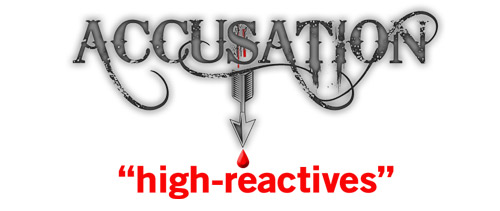Why accusation is so debilitating for "sensitive" hearts.
 Wednesday, May 2, 2012 at 12:16PM
Wednesday, May 2, 2012 at 12:16PM 
I have a particular empathy for those who are "sensitive" and tender-hearted - particularly because they are more vulnerable to accusation, or even perceived accusation, than most. It's probably one the reasons I wrote, RECOVER YOUR GOOD HEART.
I also happen to be one of those "sensitive types." It's not surprising that I'm a writer and a solo piano artist, callings that require introspection and a willingness to feel deeply. My mentors are books and my piano is my therapist.
In her extraordinary book, Quiet: The Power of Introverts In A world That Can't Stop Talking," Susan Cain lays out the research on people called "High Reactives," a trait that often corresponds to introversion but not always. These children and adults "react" more intensely to changes or perceived threats in their environments than "low-reactives" do.
Here are some characteristics of "high-reactives:"
- Sensitive nature
- May be “quicker than others to feel sickened by violence and ugliness, and likely to have a strong conscience.”
- Will experience a “more intense mix of guilt and sorrow than a lower-reactive kid.” “High-reactive kids seem to see and feel things more.”
- "...The reactivity of these kids' nervous systems makes them quickly overwhelmed by childhood adversity, but also able to benefit from a nurturing environment more than other children do."
- “High-reactive types …are more like orchids: they wilt easily, but under the right conditions can grow strong and magnificent.”
My own opinion, based on reading these findings, is that accusation will do more injury to a "high-reactive" because they're likely to feel a "more intense mix of guilt and sorrow" and more likely to internalize perceived accusation, even when it's not their fault.
Yet, there's a hidden blessing to functioning as a "high-reactive:" Others will likely benefit from your courageous, yet tender heart. People need your vulnerability and ability to feel deeply with them. You'll also benefit from knowing just how tender and kind-hearted Jesus can be.
I'll share more characteristics of "high-reactives" in the next post.
















